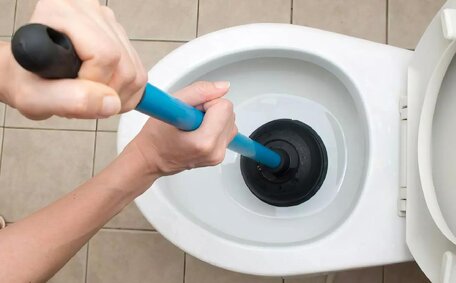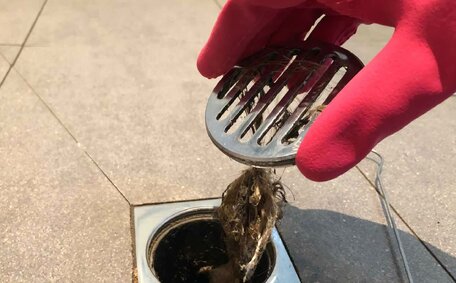
How to Prevent Household Blocked Drains
Blocked drains can be prevented by using drain strainers, avoiding pouring oils down drains, clearing hair from drains, and more tips from Seven Hills Plumbing.
Read MoreTo evaluate the energy efficiency of gas appliances, begin by inspecting their energy rating labels. These labels provide key details like the efficiency star rating from 1 to 10 stars, estimated yearly energy usage in kWh, and estimated yearly running costs. The more stars an appliance flaunts, the more energy efficient it becomes, which could significantly cut your energy use and costs.
Assessing the energy efficiency of your home includes comparing models for features such as electronic ignition and glass fronts for better heat control.
Knowing your appliances’ efficiency sets a baseline to compare upgrades against and save energy. Transitioning to modern electric alternatives, which are often more than 50% more efficient than gas models, can lead to substantial savings.
Electrifying your home with energy-efficient appliances offers multiple benefits for heating, hot water, and cooking:
Switching from gas to electric appliances can greatly improve energy management and sustainability. We offer recommendations for a seamless transition that maximises savings.
Converting to an all-electric home incurs upfront costs but offers long-term financial and sustainability benefits. The key steps are:
We encourage you to find out about gas to electric transitions supported by Seven Hills Plumbing for Sydney residents. Contact Seven Hills Plumbing on 1300 349 338 for personalised advice and services related to upgrading appliances in your home.
Optimising the use of your current electricity and gas appliance combinations is beneficial while you transition to more efficient appliances:
Check out our tailored advice on maximising household energy efficiency in numerous areas, including your pool, ensuring you get the most from your gas heaters. Contact Seven Hills Plumbing on 1300 349 338 to discuss your home’s unique needs.
Heat pump systems, as energy-efficient alternatives to conventional gas units, streamline the management of your hot water. They work by absorbing ambient heat and using a compressor and refrigerant to amplify this into usable heat for your hot water heating purposes.
Compared to gas systems, find out more about how Heat pump systems designed for hot water heat can be over 50% more efficient, converting over 3 units of ambient heat into 1 unit of water heating. This efficiency may translate into hundreds of dollars in annual savings on water heating bills.
Beyond efficiency gains, heat pump systems contribute to clean energy goals and align with the sustainable household scheme, producing fewer greenhouse emissions as most run on renewable electricity. They also eliminate risks associated with gas appliances like leaks or indoor air contamination.
With impressive sustainable home credentials and the capacity to slash water heating bills each month, heat pump systems can also present a compelling case to replace ageing gas geysers. Contact our team at Seven Hills Plumbing on 1300 349 338 for personalised advice on heat pump hot water solutions.
Induction cooktops save time and energy, offering an efficient alternative to gas stoves and transforming cooking experiences. Induction works by using electromagnetic energy to directly heat pots and pans, reducing cooking time on the cooktop surface.
Induction cooktops operate with remarkable efficiency, directing up to 90% of consumed energy straight into heating cookware. That’s rather than gas stoves, where merely about 40 - 55% of heat generated gets channelled into the cookware.
Induction cooking is safer and cleaner than gas, offering better efficiency. The absence of open flames or hot surfaces reduces the risk of gas leaks and indoor air pollution.
Induction cooking’s responsiveness and precision not only save time but also enhance meal preparation, complementing modern cooking techniques. As renewable electricity usage expands, reducing emissions concerns, induction cooktops stand out as an attractive option for transitioning from gas.
Check out our tailored advice on integrating an induction stove, to enhance your kitchen with greater efficiency, safety, and convenience, contact the team at Seven Hills Plumbing on 1300 349 338.
Making small upgrades to insulation and sealing any air leaks around your home can enhance the efficiency of existing gas appliances. Here are effective ways to implement changes that conserve much energy:
Properly sealing air gaps can save over 500 kWh per year, decreasing the energy consumption of gas appliances. Enhanced insulation also contains heat, enabling appliances to operate more efficiently. Contact our team at Seven Hills Plumbing on 1300 349 338 for advice tailored to your home.
With gas prices rising, questioning is gas cheaper than electric solutions is essential to be savvy about reducing your energy use. Here are handy tips to help cut costs and reduce consumption:
Conscious use of gas appliances can significantly reduce your energy consumption and bills over time. Stay top of your energy game with further tailored advice from our team at Seven Hills Plumbing on 1300 349 338.
The Australian federal and ACT Government among the states, offer various rebates and incentives to help households upgrade appliances and systems to reduce your overall energy consumption with more energy-efficient models.
In Victoria, Sustainability Victoria offers similar rebates when replacing gas appliances with high-efficiency electric alternatives. Eligible items include:
Additional substantial rebates are accessible in NSW for your solar system, including rooftop solar PV systems and batteries when paired with efficient upgrades. Rebates help offset upgrade costs to make transitions more affordable.
Our team can help you maximise available NSW government rebates for modernising your home appliances and systems.
Contact Seven Hills Plumbing on 1300 349 338 to explore options suited to your household and receive guidance on securing rebates for upgrades.
Blocked drains can be prevented by using drain strainers, avoiding pouring oils down drains, clearing hair from drains, and more tips from Seven Hills Plumbing.
Read MoreNoticing signs of a household blocked drain like slow drainage, gurgling sounds, foul odours or overflowing water indicates you need an emergency plumber. Call Seven Hills Plumbing to dispatch a plumber to clear your blocked pipes before further damage.
Read MoreRestaurants and cafes frequently deal with blocked kitchen drains due to grease, fat and food buildup. Prevent clogged pipes through scraping plates, using drain strainers and avoiding pouring fats/oils down sinks. Or call a professional plumber to hydro jet pipes and permanently clear blockages.
Read MoreSeven Hills, 2147 NSW
We will call back as soon as possible.




